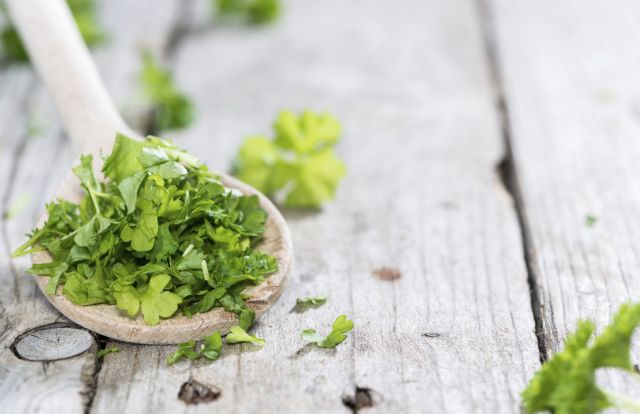You might think of it as strictly garnish, but research shows that parsley may deserve higher billing on your plate.
Parsley is rich in apigenin, a type of flavonoid that appears to help put prostate cancer cells into slow-growth mode in lab studies. So pull that little green edible off the edge of your platter and give it a nibble – your prostate could use the benefits of parsley.
There are dozens of different kinds of flavonoids -- in fact, they are divided into six main subclasses that are hard to keep straight without a degree in biochemistry. The subclasses have names like flavonols, flavones, and flavanones. And the subclasses each contain more tongue-twisters like luteolin, quercetin, cyanidin, and apigenin.
Luckily, you don't have to remember all that. Just remember two things: 1) the benefits of parsley include flavonoids and 2) eat lots of fruits and vegetables. Healthy prostate-promoting compounds are found almost exclusively in produce. You'll also find them in a few beverages, such as tea, wine, and beer. And in chocolate, the main ingredient -- cacao beans -- is derived from plants.
So save yourself the science lesson and simply seek out five servings of colorful vegetables and four servings of colorful fruits every day. It's the simplest way to get your fill of these anticancer, anti-inflammation, antiviral, antioxidant goodies.






